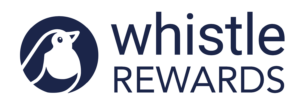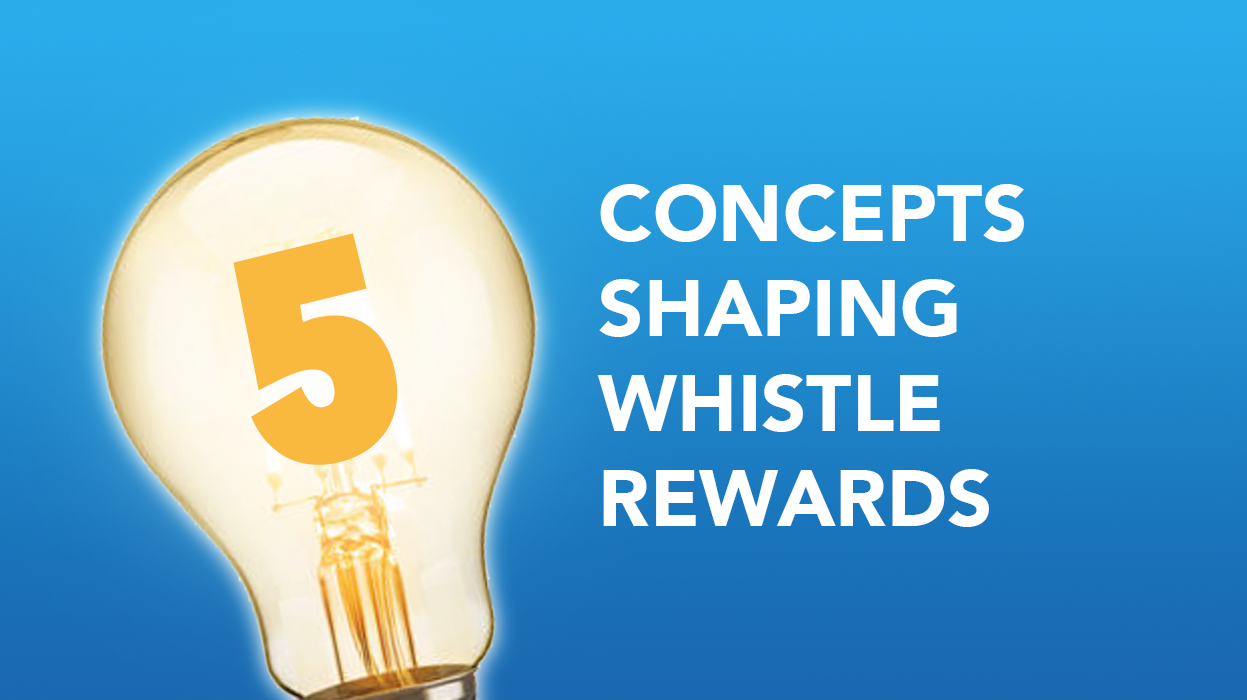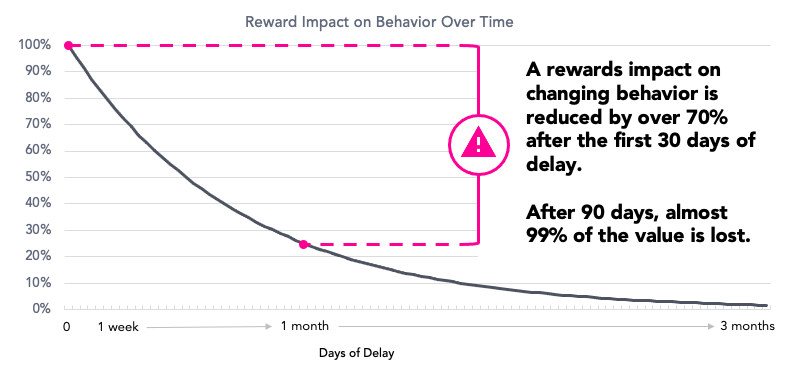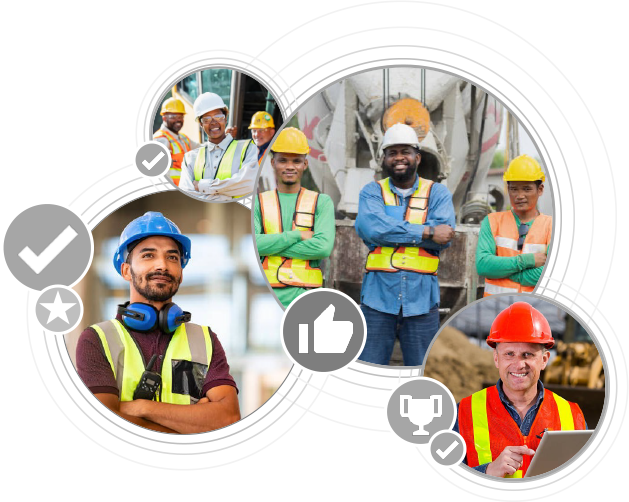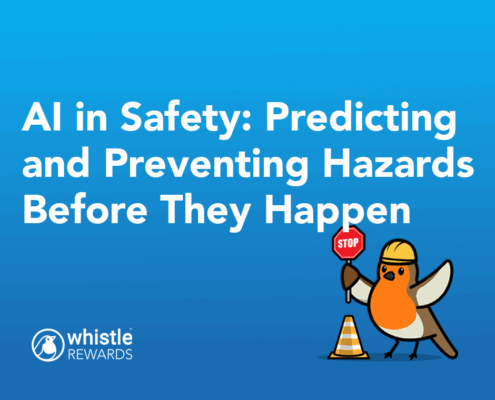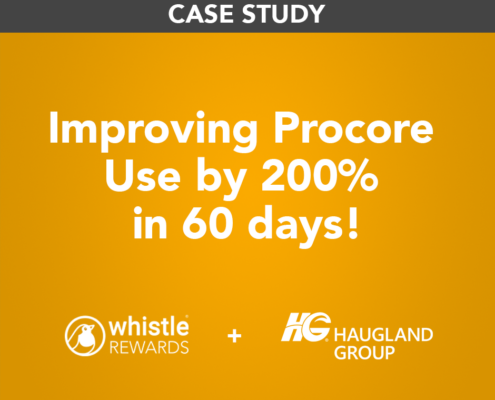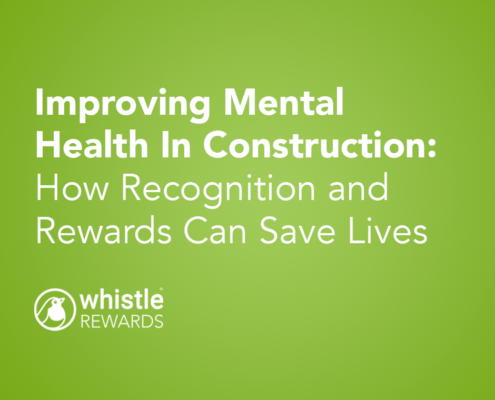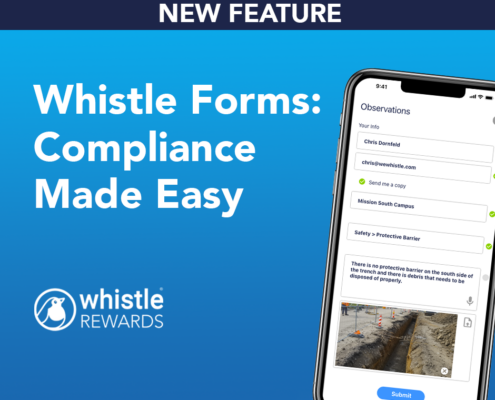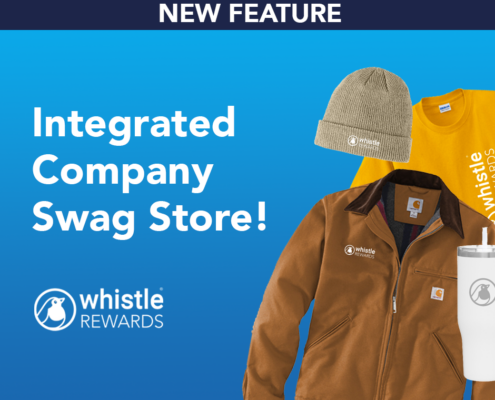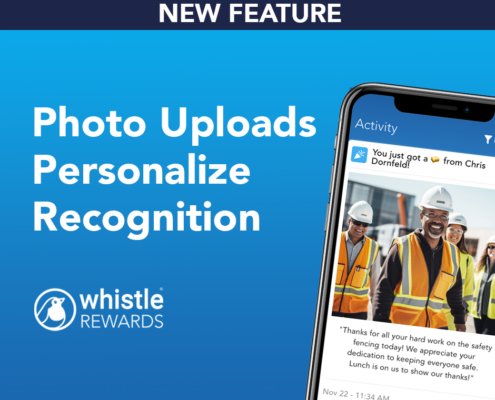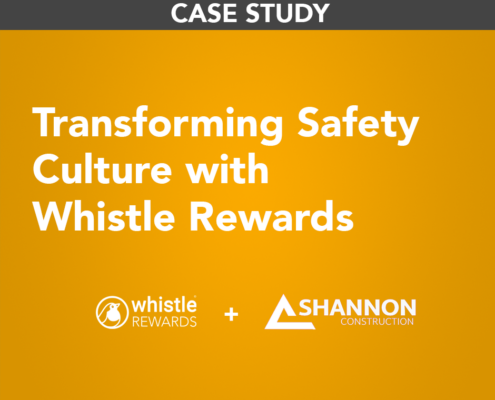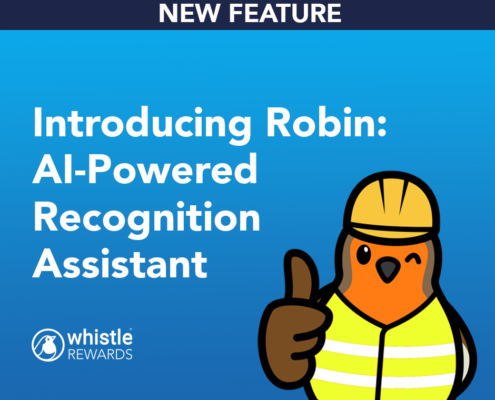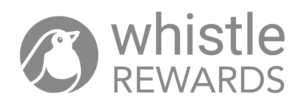5 Concepts Shaping Whistle Rewards
What’s behind the design of the platform
Rewards and recognition can be powerful tools driving employee engagement. However, most companies don’t have experts helping them design programs that work and end up wasting time and money. Following these five best practices will improve the engagement at your company. They are also the key concepts that inform the design of Whistle Rewards.
1: SIMPLICITY
The number one reason managers don’t consistently use existing programs is complexity. Most programs are too hard, take too long and add unneeded steps.
This complexity creates cognitive friction, anxiety and ultimately negatively impacts use.
The best tool is simple for managers to use: 2-3 steps max to send a recognition. It is also super-simple for the recipient. There shouldn’t be any software required, no userID or password. You should get a reward as easy as someone handing you a cup of coffee.
The construction industry is second only to forestry for a lack of technology adoption. This makes sense given the nature of the work – physical, remote and often in locations with limited resources to support technology. By keeping the design and experience simple, we improve the impact of the platform.
Whistle designed the ability to send and receive a reward with a relentless focus on simplicity. All that is needed for a supervisor to send a reward is a name and phone number – and about 30 seconds of time. And to receive a reward the recipient simply clicks on a link to access the rewards. No app to download. No account to create. Simple.
2: TIMELINESS
Timing, it turns out, is the most important factor when it comes to incentives and rewards. In the same way timing is important when you’re potty-training a new puppy, your staff need to be recognized as soon as possible. Every day’s delay in a recognition reduces the impact by 5%.
Imagine a construction worker demonstrating exemplary safety practices on a job site. You send a $100 recognition that is processed through payroll and arrives in his paycheck in 2 weeks. That $100 has only $49 of impact because of the delay.
Timely recognition and rewards builds connections between the recognition and the behavior. However, most programs only offer recognition and rewards at the end of a pay cycle, quarter or even a year. Sometimes this is by design, other times, it is a result of cumbersome administrative systems. Regardless of the reason, the behavioral decay significantly reduces the benefit.
Immediately delivering rewards following desired behavior, construction companies can leverage behavioral science principles and significantly improve outcomes. Whistle recently worked with a general contractor to increase safety reporting by 50% with a simple reward program costing a little over $5 a day. This also builds on the trend in construction to shift toward a culture that offers “carrots” in the form of rewards as much as “sticks”, penalties for lack of compliance.
3: FREQUENT AND SMALL
Employee of the month or supervisor of the year are very common elements in the construction industry, but it turns out, even though it makes us feel good to both give and receive recognition, they are not effective at behavior change.
Small and frequent is more cost effective. Giving out 20 $5 daily rewards over the course of a month would have the more behavioral impact as a $300 reward given at once at the end of the month. Same timeframe, 1/3 of the budget driving more impact.
Frequency also builds upon proven patterns in learning and forming new habits. When learning something new or practicing a new behavior our brains process information in small chunks more effectively. For example, in learning programs, people are 20% more successful retaining information when presented in small chunks. People learn better and are motivated more effectively by small frequent cycles.
4: CASH IS BEST
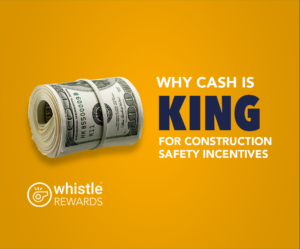 $211,000,000. That is the amount of profit that Starbucks made last year from “breakage” of gift cards. “Breakage” is the industry term for unused balances on gift cards or expired points banks. This is a hidden tax to both the employee receiving a reward and the company because it is lost value going to the middleman.
$211,000,000. That is the amount of profit that Starbucks made last year from “breakage” of gift cards. “Breakage” is the industry term for unused balances on gift cards or expired points banks. This is a hidden tax to both the employee receiving a reward and the company because it is lost value going to the middleman.
Employee rewards and recognition programs are crucial for fostering engagement and motivation in the workplace – and especially impactful in construction. When designing these programs, selecting the right rewards is critical. While various options like merchandise, gift cards, extra vacation days, and cash bonuses exist, research consistently shows that cash stands out as the most effective motivator.
Studies indicate that cash rewards are highly valued by employees due to their immediate gratification and versatility. Research also shows that financial incentives significantly enhance employee performance compared to other types of rewards.
Despite arguments favoring non-cash rewards for their perceived memorability, recent studies challenge this notion, showing that employees tend to have better recall of cash rewards. Therefore, for companies aiming to maximize the impact of their rewards programs and drive genuine engagement, prioritizing cash as the primary reward is recommended.
5: COMMUNICATIONS
Communication plays a pivotal role in driving behavior change. Effective communication not only conveys important information but reminds people of the importance of the topic and helps recipients in the formation of new habits.
Whistle automates communication, not only informing participants about a program, but also creating prompts, recognitions and reminders ensuring compliance and supporting the formation of new habits.
When combined with rewards, thoughtful communication tools built around best practices are as important as the reward itself. This is why Whistle continually reviews communication practices and automation through the platform.
